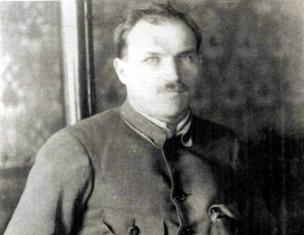The success of entrepreneurial activity largely depends on the entrepreneur, who is the initiator of entrepreneurial activity, and often the organizer and performer of the work at the same time. Therefore, much attention is paid to studying the characteristics of entrepreneurial activity and the business qualities of an entrepreneur. The generally recognized qualities and character traits of an entrepreneur are considered to be the desire to achieve success, initiative, independence, ability to run a business, and others. In particular, it should be noted that an entrepreneur as a person must see and evaluate business opportunities, generate the necessary material, financial and labor resources, benefit from their use, take initiative in a new business, effectively manage human resources, and guarantee success.
It is possible to give other definitions of the main features of an entrepreneur, which are covered by various authors in domestic and foreign literature. However, all of them do not provide a complete description of the entrepreneur, since they do not reflect property relations. Many in any society, having such qualities as the ability to navigate a market situation, organize production, and a creative approach to solving problems, do not belong to entrepreneurs, since they work for an employer. Such people can be considered to have the ability to engage in entrepreneurial activity, but they are classified as employees and work under contracts with employers. In addition, the search for ways to increase production efficiency and ensure the success of the organization in which they work is, to a certain extent, part of their production and economic functions. At the same time, they do not bear full, sole responsibility for the results of the enterprise’s activities, since they subordinate their actions to the tasks of management, although their payment depends on the results of the enterprise’s work. An entrepreneur is usually the founder of his own business. So, the main distinctive features of an entrepreneur should include, in addition to those mentioned above, such as the ability to organize one’s own business, enterprise, etc. Only in practical activities can such character traits and business qualities of an entrepreneur as ingenuity and the ability to achieve success be manifested. Depending on desire and financial capabilities, an entrepreneur can become the sole owner of a business, enterprise, or a co-owner, joining forces with other entrepreneurs on a partnership basis. However, in all cases, the entrepreneur must be the owner of the business, and in this way he is fundamentally different from all other categories of workers, and primarily employees.
An entrepreneur, depending on the organization of work, can carry out entrepreneurial activities individually - individual labor activity, in the family circle - family entrepreneurial activity; unite with other entrepreneurs in partnerships; recruit employees and organize a family business structure.
In a family business organization, the main characteristics of an entrepreneur include the ability to ensure authority among family members and to organize in the best possible way the distribution of responsibilities between family members. An important feature in this case will be the ability to manage family members, relying on family relationships and while ensuring high results in production or provision of services.
Entrepreneurs who have employees under their command must have traits that ensure high professionalism in organizing production and managing human resources.
If in individual entrepreneurial activity the entrepreneur is actually responsible for the results of only his own labor, then he can arbitrarily set the regime and intensity of labor.
His income depends entirely on his ability, strength and desire to increase it.
The important features of an entrepreneur, who is not only the owner of his business, the organization of the enterprise, but also the organizer of production and economic activities for which he hires workers, should be considered, first of all, his organizational abilities, the ability to combine his own interests with the interests of workers and direct the latter’s energy to achieving success at work. It is the ability of an entrepreneur to effectively collaborate with a team that is the key to the successful work of his organization based on obtaining additional effect from the integrity of the manifestation of all factors that ensure success. At the same time, it should be noted that this form of organization of entrepreneurial activity is much more complex than individual entrepreneurial activity.
The experience of the world economy and research by Western experts indicate that not everyone can be a talented entrepreneur, but only 5-7 people out of 100 able-bodied people.
A classic example of a talented entrepreneur can be considered Ford, who, starting from a small business in a workshop for repairing agricultural machinery, achieved global recognition in the automotive industry, and whose whole life was subordinated to ensuring success in his business based on the careful development of new models of equipment and ensuring their competitiveness .
In all cases, organizing a business (own business) is associated with certain costs and requires the availability of capital, the amount of which is determined by the scale of business activity, its capital intensity and other factors. Taking into account the ownership of capital (this can be the entrepreneur’s own capital, borrowed capital, joint stock capital, partnership capital or any other enterprise), relations between its owners are formed and the degree of risk of entrepreneurial activity is determined. In cases where the entrepreneur uses only his own capital, the personal risk of the entrepreneur is determined. For all other forms, the amount of business risk to the borrower of capital is determined. Moreover, such a borrower is also an entrepreneur in the field of financial turnover. The latter insures himself against possible failure by making inquiries, collecting the necessary information about the entrepreneur, borrowing capital, his business, organization, prospects, reliability of their success, and the like. Thus, an important feature of entrepreneurs working on borrowed capital should be considered their mutual awareness of the financial and credit system, the ability to calculate their capabilities and coordinate them with the capabilities of creditors, and determine the upper limit in the formation of credit financial relations.
It should be noted that in a stable economic situation with saturated markets for products and services, the natural abilities of an entrepreneur should rely to a greater extent on a high level of professionalism and education, while in transition economies the lack of knowledge is to a certain extent replaced by such qualities as the ability to risk, taking responsibility for the uncertainty of the situation, etc.
In real life, the positive business qualities of individual entrepreneurs cannot always ensure the success of entrepreneurial activity and the prosperity of the enterprise. Moreover, real life often presents surprises that provoke the entrepreneur to take illogical and immoderate actions. However, such actions can produce positive results. Nevertheless, Western experts attach great importance to the study of the main features and business qualities of an entrepreneur. The phenomenon of an entrepreneur, as a person who chooses an active position in life aimed at finding the best ways to satisfy the needs of consumers, is constantly in the field of view not only of economists, but also of psychologists, psychoanalysts, sociologists, and politicians.
Determining the business qualities of entrepreneurs can become an enveloping theoretical basis for building enterprise management mechanisms. A certain classification of business qualities according to the areas of their occurrence and use in entrepreneurial activity can become a scientific tool for self-assessment and self-analysis of their entrepreneurial capabilities for beginner entrepreneurs and for those people who want to engage in entrepreneurial activity. This will allow them, already at the first stage of entrepreneurial activity, to orient themselves to a certain extent, and most importantly, to pay attention to the need for self-improvement and, if necessary, obtaining certain qualities. It should be noted that certain qualities are given to a person by nature, while others are acquired in the process of obtaining education, business and professional qualifications. It is advisable to classify such abilities into a group of professionalism, in which subgroups can be distinguished that characterize organizational and managerial abilities.
The group requires special consideration; it determines the socio-psychological qualities of an entrepreneur, in particular such as the need to achieve success, self-determination at work and in society, the need to start your own business, do something new, find a new way to solve a known problem. This group of qualities is inherently the driving force, the motivation for creating an entrepreneurial structure, or at least before engaging in individual entrepreneurial activity. The main list of business qualities of an entrepreneur and their distribution by groups are given in table. 2.
However, it should be noted that the above grouping is somewhat conditional. Such, for example, qualities as the ability to coordinate their interests with the interests of partners, hired workers can be attributed both to professionalism, since the solution of such problems requires certain knowledge on the issues of human motivational behavior in the production process, and in natural properties, such as contact in establishing connections with the team, partners and the like. An entrepreneur can acquire a number of business qualities already in the process of activity. In general, the presence of all business qualities can be verified only in the process of practical entrepreneurial activity. It is clear that in real life it is difficult to find a person who would have all the listed qualities at the same time, possess them equally and use them in entrepreneurial activity. All this happens much more complicated. At the same time, the insufficiency of some qualities is offset by the action of others.
Table 2
Business qualities of an entrepreneur
|
December eat P indicator |
Business qualities |
|
1. Natural (physiological) abilities |
1.1. Quick wit 1.2. Originality of thinking 1.3. Ingenuity 1.4. Courage, ability to take risks 1.5. Independence of judgment 1.6. Autonomy of action 1.7. Speed of reaction to changes in the situation, including in a market economy 1.8. Contact in establishing connections with the surrounding community |
|
2. Social and psychological qualities |
2.1. The need to achieve success at work 2.2. The need to achieve recognition in society 2.3 Leadership in a team 2.4. Ability to self-organize 2.5. The need for self-realization in entrepreneurial activity 2.6. Initiative 2.7. Defining principles of fairness in income distribution 2.8. The need to find a new way to solve problems 2.9. The need to start your own business |
|
3. Professionalism |
3.1. Education level 3.2. Working with Entrepreneurship Basics 33. Ability to independently perform functions related to entrepreneurial activity 3.4. Ability to assess the real economic situation 3.5. Ability to make independent decisions |
|
4. Organizational abilities |
4.1. Ability to organize the production process 4.2. Ability to manage human resources 4.3. The ability to coordinate one’s interests with the interests of partners and employees 4.4. Ability to find consumers for your own products |
|
5. Management skills |
5.1. Ability to analyze the economic situation 5.2. The ability to predict the possible state of the enterprise 5.3. Ability to make optimal decisions regarding the operation of the enterprise 5.4. Ability to manage capital |
However, several important business qualities that characterize a person as an entrepreneur can always be determined. Moreover, in society it is necessary to take into account the culture of entrepreneurial activity, at the heart of which issues related to determining the business qualities of an entrepreneur and giving priority to certain of them occupy an important place. It is precisely these processes that occur constantly in different countries with developed market economies. In particular, in the USA, Japan, and Western European countries, priority is given to such qualities of an entrepreneur as the ability to create new values, including new technologies, new products, new types of services; ability to achieve success; honesty in relations with partners and consumers. To acquire such business qualities, you need to use those listed in Table 2, that is, be a professional and a naturally gifted person. In addition, it is necessary to take into account the norms of behavior recognized in society.
The social environment has a significant influence on the development of the business qualities of an entrepreneur. Problems that affect economic development also form a certain stereotype of human behavior, primarily an entrepreneur, as the most active element of human resources. The staged development of entrepreneurship in the historical aspect shows that the priority of the business qualities of an entrepreneur largely depends on the level of satisfaction of his material and spiritual needs. At the same time, given the low standard of living of the people, as well as the entrepreneur himself, business qualities associated with meeting material needs take priority. With the pleasure of the latter, the priority of business qualities that are capable of satisfying the spiritual and cultural needs of both entrepreneurs and the society of a particular country as a whole is formed. The processes of satiating the needs of entrepreneurs and the needs of consumers are connected not only with each other, but with the formation of certain business qualities of entrepreneurs. This can be seen in examples of the development of entrepreneurship in countries such as the USA, Japan, CIS countries, including Ukraine. In particular, after the huge and devastating crisis of the 30s of the 20th century in the United States, entrepreneurship experienced the highest rates of development in the sphere of trade and services. It was in them that one could quickly obtain capital. And entrepreneurs, in order to achieve success and concentrate capital, did not spare their own efforts and did not take the time into account. At this stage, priority was given to such business qualities of entrepreneurs as the ability to achieve success and knowledge of society. The media were aimed at cultivating such business qualities. The successes of entrepreneurs were widely advertised in newspapers, magazines, radio and television. Much later, in the 50s, the focus of public opinion and the efforts of entrepreneurs shifted to the development of science, to knowledge-intensive sectors of the national economy, and such business qualities of an entrepreneur as innovation, a high culture of business entrepreneurial relations, trust in clients and partners received public recognition , ability to take risks. It was during this period that a new type of entrepreneurial activity associated with risk was formed, known in Western literature as “venture business.”
The development of entrepreneurship in Japan after the Second World War took place just as intensively, but on a somewhat different plane. The Japanese spared no effort, working 12-14 hours a day, increasing their own well-being and the well-being of the country as a whole. The main direction of development of entrepreneurship in Japan is mastering the achievements of science and technology, creating new technologies, new high-quality and competitive products. The main business qualities of entrepreneurs were considered not only the mastery of innovations, but, above all, high-quality work and professionalism, the ability to manage human resources based on national culture and religion.
In Ukraine, as in other CIS countries, the development of entrepreneurial activity occurred at the end of the 80s, when the laws of the administrative-command system were significantly weakened and a market economy had not yet been formed. In addition, the economic situation contributed to the possibility of rapid enrichment for entrepreneurs due to the possibility of skimming off the ignorance of the majority of the population about the quality of the products and services they provided. In conditions of undersaturated markets and imperfect laws that would protect consumer rights, this was not difficult to do. This did not require high professionalism in producing high-quality products, but only the ability to use the shortcomings of domestic legislation. Therefore, the main business qualities that were inherent in entrepreneurs of that period were: energy, speed of orientation in changes in the market economy, and the ability to achieve success at any cost. The lack of culture in business relationships between entrepreneurs has contributed to the proliferation of fraud. This is how “new Russians”, “new Russians” appeared, who in a few years amassed significant capital, but brought incomparably less benefit. Most likely, they caused great damage to the development of entrepreneurial activity and sowed despondency among a significant part of the population in its progressiveness and usefulness. Significant shortcomings in this were also committed by the state, which practically did not regulate the processes of business development. However, the shortcomings and mistakes of the first period of the formation of entrepreneurial activity were largely forced. If we depict the Social Portrait of a domestic entrepreneur, his origin, then we will have to admit that a significant part of people came into entrepreneurship with a dubious, or even criminal, past. For such entrepreneurs, it is not at all typical to seek novelty in solving important socio-economic problems of the development of society, but only the desire for their own enrichment. However, as the historical development of entrepreneurship in other countries shows, such phenomena are temporary and fleeting.
With the improvement of the legislative framework, the saturation of commodity markets, and increasing public awareness of the basics of entrepreneurial activity, the requirements for entrepreneurs and their activities will increase. Considering that Ukraine has a high scientific and technical potential and processes for reducing state scientific and research institutions are envisaged, it can be predicted that business activity will grow in these areas.
Summarizing the above positions, it should be noted that the business qualities of a businessman are not only his characteristics, but largely reflect the essence and direction of entrepreneurial activity. Therefore, society must educate entrepreneurs, direct their energy to solving important socially useful problems, using the media and widespread coverage of positive examples.
Business qualities of a private entrepreneur
People have studied entrepreneurs for a long time, trying to understand why some are successful and make a fortune, while others go completely broke. Why are some more resilient and resilient, willing to take risks, while others are not? How do you manage to find solutions in seemingly hopeless situations? How do they recognize opportunities and pursue them? What makes a person a successful businessman?
An entrepreneur is a person who does his own business to make a profit. Finding a good idea is not difficult, it is much more difficult to bring them to life. Bankruptcy auctions are becoming increasingly popular. Business bankruptcy statistics tell us that registration of a limited liability company after five years of operation of the company ends with the liquidation of the business. That is why it is so important to understand whether you have the makings of a businessman and the entrepreneurial spirit to open your own business.
Personal qualities required for every entrepreneur
Researchers identify seven common characteristics that are found in successful businesspeople. If they are present, your chances of becoming the owner of a profitable business increase dramatically.
Self Confidence. Self-confidence shows that you trust your skills, abilities, and abilities. You believe that difficulties must be faced head-on, that problems must be solved as they arise, that you should never give up. Has registration of a share issue been delayed? You are not nervous, but patiently waiting.
Risk attitude. You trust your intuition and are ready to act based on your sixth sense. However, success does not depend at all on luck. It is achieved through hard work and enormous efforts. Do you think this product will be in demand in a couple of months? Take it and introduce it to the market.
Financial deposits. You know that items and time cost money. Most entrepreneurs acquired this skill while earning their first money.
Competitiveness. You know how to outperform your competitors and are not afraid of competition.
Observation. You are always looking for new ideas, studying modern technologies for making money, and following the development of your industry and the economy as a whole. Have the documents for registering a non-profit partnership changed? You will be the first to know about this.
Work Ethic. You have integrity and moral principles that lead to an excellent reputation.
Ability to relax. You know when to work and when to rest, you differentiate between work and personal life. Exhaustion and moral exhaustion do not lead to success.
These characteristics are the components of entrepreneurial success. And many of these qualities can and should be developed.
Receive the most to your email:
You have thought about this more than once: while driving to or from work, at the next meeting in the director’s office, when you and other employees were given a dressing down. We thought when you were limited in making decisions on your own, requiring approval of every step. You thought and reflected on this more and more often and finally decided... You decided to become the owner of your own business. But before you take such an important step, think about whether you have what it takes to qualities that are so necessary for an entrepreneur?
Qualities of an entrepreneur:
1. Determination– ability to make important decisions. All activities of an entrepreneur are related to the ability to think quickly and choose the option that is necessary and useful for one’s business. It's actually not easy. It is important not only to make a decision, but also to calculate in advance how this decision may turn out in the future. At the same time, you cannot hesitate and think for a long time, otherwise your business may slow down, and profitable deals may be missed.
2. An entrepreneur must have not only the ability to make decisions, but also be responsible for all the consequences of doing business. This shows him responsibility. Such a person inspires trust because he does not waste his words and promises and is always responsible for his actions.
3. Self-discipline and self-organization- this is the ability to pull yourself together, no matter what your mood is today, and start doing the planned things. Without willpower, perseverance and patience there's no way around it. It is important to clearly imagine the goal, be able to correctly prioritize and move towards this goal according to a pre-thought-out plan. It is also necessary not to waste your time, physical and material resources, but to strive to use them with the greatest results.
4. Ability to organize and plan– if you don’t know how to do this and go with the flow, then doing business this way can only lead you to one thing – failure. If you decide to start your own business, think it through down to the last detail and make a plan for organizing and financing your business. Naturally, not every point of the plan can be observed in the future; there may be some unforeseen deviations. But having a plan will help you understand how to act and in what direction to move, and if you are not alone in business, then move in concert with other participants.
5. Independence– here it is important to understand how capable you are of acting on your own behalf. Do you have a habit of taking actions only after the advice or direction of another person? Independence is manifested in the ability to set goals and objectives without outside influence. Independent people rely only on themselves.
6. Self-sufficiency- such people do not depend on the opinions of others. They know what they want and how to achieve what they want, and they are able to feel pride in a job well done.
7.Optimism– a necessary quality of an entrepreneur. Business requires risk, and risky business does not always have the result that the businessman expects. An optimist finds positive things in failures: defeat is the key to future victories! A pessimist will quickly give up, but an optimist will look for other options for successfully promoting his business.
8. Ability to communicate with people and establish contacts. An entrepreneur will not be able to successfully run a business if he has difficulty communicating, as well as if he is conflicted, overly shy, or unsure of himself and his business. A business will not be successful without established partnerships and an established client base. Things will stall if a common language is not found with those people with whom you must contact by line of work.
9. The ability to move only forward and not stop there, since any stop will drag your business down. Business requires constant development and you must always remember this!
10. In addition to the above, there are many more qualities that a future entrepreneur should have: perseverance, determination, self-confidence, ability to finish what you start, hard work.
 Although health does not apply to quality character, his condition is an important factor when deciding on his own business. Any business requires investment - financial, material, physical and mental. It is quite possible that in the process of establishing a business you will have to overwork, snack on the go, and be nervous. Therefore, good mental and physical health is extremely necessary for a future businessman.
Although health does not apply to quality character, his condition is an important factor when deciding on his own business. Any business requires investment - financial, material, physical and mental. It is quite possible that in the process of establishing a business you will have to overwork, snack on the go, and be nervous. Therefore, good mental and physical health is extremely necessary for a future businessman.
Also, one should not discount opinions of loved ones about your idea. Starting your own business may entail some financial difficulties. You should also take into account that all your working and free time during the formation of your business will be devoted not to your family, but to your business. Will your loved ones be ready for such hardships? If you have already opened your own business, then involve your family in the business and give them some instructions. Then your family will be more aware of what your work is.
It is important to understand how interested you will be in your future business. Are you ready to take on the burden of responsibility for it? This is a serious process that requires all of the above qualities. If you are a great cook or crafter, but are indecisive in life or have problems with self-discipline or persistence, it is possible that you may become disillusioned with your business in the future. But on the other hand, your own business, which you are incredibly interested in, will help you develop those quality character that you were missing before.
Today, being an entrepreneur is not just fashionable, it is quite commonplace. Everyone strives to open their own business, without even thinking about what qualities a person must have in order to achieve success in their own business. This is why nine out of ten people burn out on such attempts. Moreover, some scientists believe that only 8% of the country's population is capable of running a successful business. Let's figure out what traits of an entrepreneur help him survive in his market sector.
Who can be called an entrepreneur
Before examining the qualities of an entrepreneur, it’s first worth understanding what we mean by this term. First of all, an entrepreneur is a person who is engaged in economic activity in any field. Its main goal is to obtain benefits from this activity.
However, in reality everything is not so simple. To really benefit, an entrepreneur must have deep knowledge from different fields and be a kind of generalist. He should have a good understanding of economics, law, politics, and psychology. He must be able to establish connections with people who own capital, come up with innovations, and know how to promote the product on the market.
As a result of such close cooperation, he will be able to survive any competition, introducing various innovations into production or the operation of the enterprise. This is why an entrepreneur is considered an innovator. By the way, in order to introduce these innovations, he must have sufficient powers and capabilities. This is why an entrepreneur needs freedom of action.
At the same time, he must constantly be aware of all production processes, changes in the market and other nuances of economic activity.
Portrait of an entrepreneur
Based on the above, we can put together a certain portrait of an entrepreneur. This is an absolutely independent person who is unfamiliar with dependent sentiments. On the contrary, he himself is responsible for everything. The scope of its solutions includes:
- determining a suitable field of activity;
- searching for suppliers of raw materials, energy, fuel, etc.;
- debugging sales channels for goods;
- renting suitable premises;
- market research;
- pricing of products and much more.
Confidence, gambling, risk-taking - these are all the qualities that an enterprising person should have. But at the same time, he does not rush headlong into implementing an idea as soon as it comes to his mind. He must think it over, weigh it and make the right decision.
There are also qualities of an entrepreneur that help him achieve his goals. These are flexibility, mobility, reasonable risk, the ability to relate theory to practice and much more. An important element that includes the portrait of an entrepreneur is the personal qualities that a person who takes up a business should have.
In general, it is extremely difficult to get a clear idea of what an entrepreneur should be like, since different areas of activity require different approaches to doing business. Sometimes some qualities can serve well, but in other cases they can have completely the opposite result.
Nevertheless, we can name a certain list of qualities that a person engaged in such activities should have. How they will manifest themselves in him depends on the specific situation, but he must be prepared for the fact that life will require them to be manifested. So, these qualities include the following:
- Organization is a fundamental quality not only for business. Without self-discipline and organization you won't achieve much.
- Communication skills that allow you to establish relationships with different but necessary people for your business. Business is a social enterprise; it cannot be built without people. Moreover, it is built for people.
- Prudence, practicality, ability to act strictly according to the established plan.
- Intuition, which sometimes helps better than any logic.
- Observation, on which intuition is based. By being able to notice and analyze conditions, situations, factors, you give your intuition the opportunity to suggest the most accurate solution.
- Openness to innovation, the ability to see the future, understand the needs of society and implement them.
- Self-analysis, which allows you not only to correct mistakes and prevent possible ones, but also to improve the course of a successful business.
- Flexibility, which is essential in today's changing world. It is important to be able to adapt to new circumstances in time, to be able to find your own benefits and opportunities in them.
- Reasonable risk. Today, there is fierce competition in almost every field. To survive in it, it is important to be able to take risks, but first of all, it must be reasonable.
- Belief in one's own strength, success and prosperity. Without this, it is impossible to rise after the hard falls that inevitably happen on the path of every entrepreneur.
- Creativity is the ability not only to think creatively, but to find non-standard solutions in difficult situations, new unusual ideas.
- Lack of template thinking. This is akin to creativity, but it is important not only to find non-standard solutions, but also to be able to bring them to life. Sometimes it's difficult when everyone around you expresses disbelief and disbelief in your ideas. It is important to be able to implement them, no matter what.
- Achieving goals, results orientation. A successful entrepreneur always has a clear goal and goes towards it, no matter what, using all the opportunities that come along the way.
Of course, this list can be continued indefinitely. Moreover, it is difficult to say that these are the most important qualities. Even if you have them, you will not receive a 100% guarantee that you will be a successful entrepreneur. But by developing them, you will definitely improve your life qualitatively and advance your business. Over time, it is important to identify the qualities necessary specifically for your business and persistently develop them.
Today, the business sector is successfully developing in many countries, both small firms and large organizations are being created that offer their goods and services to consumers. The range of these goods and services is so diverse that every person who wants to start his own business can occupy exactly the niche that he likes. But it happens that due to an illiterate approach to doing business, many enterprises fail and cannot withstand competition. Sometimes a business collapses due to external factors, such as the economic or political situation within the state, instability in the field of activity, or due to third-party monopolistic influences. But it happens that an organization may fail due to the fact that the personal qualities of the entrepreneur were not adapted to the implementation of certain ideas.
To run a business competently, it is worth understanding what personal qualities and character traits an individual entrepreneur must have in order to achieve success in the sale of goods and services in the modern world. Further in this article we will talk about what qualities an entrepreneur must have in order to achieve personal goals and the goals of the enterprise.
To begin with, it is worth noting that the head of any enterprise is a person who must quickly find solutions to problems, implement the functions and tasks of his own business, and also, through entrepreneurial activity, satisfy the interests of consumers of goods and services, while simultaneously solving social problems and extracting his own material benefits. Antonio Meneghetti identifies three groups of definitions that characterize what qualities an individual entrepreneur must constantly develop to successfully run a business:
- Intellectual abilities.
- Personality internal traits.
- Acquired skills and accumulated experience.
For a complete understanding, you should analyze each group in detail and list all the necessary positive qualities of an entrepreneur that will help a person successfully develop internally.

After some work on oneself, a person will be able to apply these qualities in business, which will contribute to success in business. To begin with, you should analyze a group of an intellectual nature that contributes to the development of the personal qualities of an individual entrepreneur.
Logical and analytical thinking
When using logical thinking, a person, based on data analysis, makes a number of specific decisions. It is necessary to analyze in detail how analytical thinking should work:
- Analysis of general information into separate parts, factors and components.
- A general look at each part and factor.
- Logical addition of missing information.
- Preliminary solutions to problems and problems.
- Analysis of preliminary options and consideration of their consequences.
- The structure of the intended solution to the problem.

Insight and curiosity
The qualities needed by an entrepreneur help predict the possible final outcome of a given situation. Thanks to insight, an individual entrepreneur sees and understands the background hidden behind the visible phenomena presented and the behavior of other people. The ability to identify hidden motives helps to truly determine the motives of people's words, feelings and specific actions.
Curiosity, in turn, allows the entrepreneur to develop comprehensively, which helps him use the accumulated knowledge at the right time.
This also includes intuition - the ability to anticipate a particular situation. But, unfortunately, intuitive quality is an innate ability that is given by nature, and not all people are able to predict in advance the development or outcome of situations.
Ability to quickly assimilate new knowledge, original thinking
These qualities of an entrepreneur allow you to quickly navigate in the modern unstable world, adapt and improve your knowledge in necessary situations. Fast information processing is possible only with regular brain training. In this case, constant reading of books will come to the rescue. And if there is such a quality as original thinking, a person can violate the conservative rules for solving certain problems, which in some situations leads to significant savings in material and non-material benefits.

The personal internal characteristics include the following listed qualities of an entrepreneur.
Honesty and straightforwardness of action
Directness and loyalty to commitments help the entrepreneur achieve his goals, adjusting his tasks as necessary on the way to achieving the final results that were laid down when the organization was created.
Initiative and independence
Only independent active actions and entrepreneurship can help in achieving a goal, and independence in decision-making and the search for rational ways to complete tasks will strengthen the position of the entrepreneur’s personality.
Persistence and self-control
These qualities of an entrepreneur are faithful companions in solving any problems, since only with perseverance and willpower can you bring the business you have started to its logical conclusion. The ability to control behavior and remain calm will serve to make decisions more balanced, because only with a “cold mind” can you determine the significance of a particular situation.

Communication skills
Sociable people are able to make the right contacts that will help in running their own business. Openness to communication with other people helps not only to benefit from communication, but also to learn a lot of information necessary for work.
Observation and ability to quickly assimilate information
The details of something noticed in passing serve as the generation of your own ideas, which can be implemented as part of running your own business, and the rapid assimilation of information helps to remember important details of a certain phenomenon or object for a long period of time.







